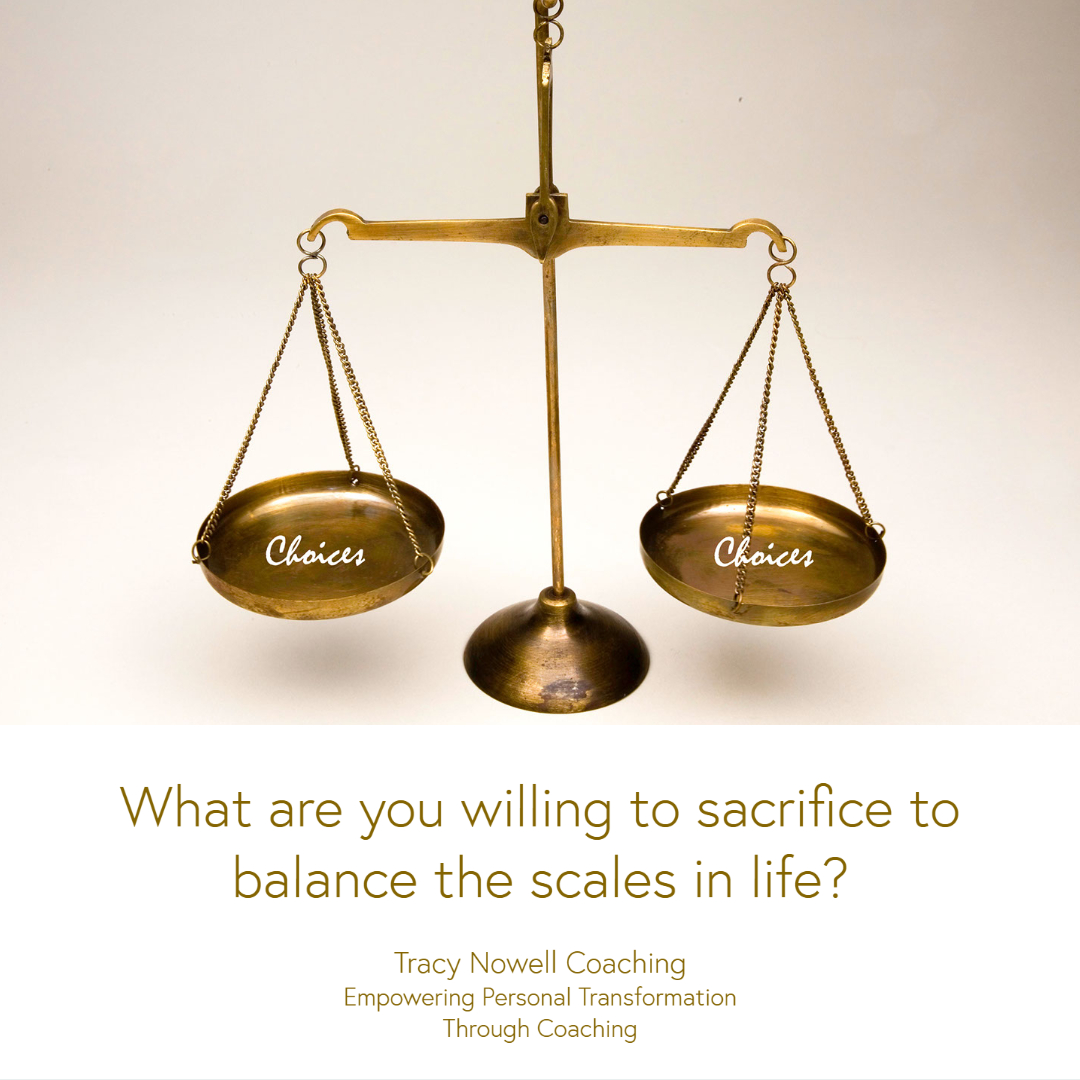Balancing the Scales in Life

Do you need more balance in your life?
To clarify this, I am talking about the balance between your work, marriage, kids, health, friends, spiritual life, personal time, or recreational pursuits, to name a few. And it includes considering how and where you spend your time, money, and energy and what you focus on.
How do you achieve this balance? To answer that question, you must first determine what is most important to you, what you most value.
So, what are the top ten things you value most in life?
Now, pick your top five out of the ten you listed.
Then pick the top three out of the top five.
And finally, pick the one you value most from the top three.
Does knowing and ranking what you value most help you find balance?
It helps, but it's not that simple - especially if you must make a major sacrifice in one or more areas to benefit another.
According to Jack Welch, former CEO of General Electric, who was considered one of the greatest leaders of his generation,
"People talk a lot about work/life balance. There is no such thing as the work/life balance. There are work/life choices, and you make them, and they have consequences."
Now that makes sense.
You must make tough choices as you narrow or rerank your list of what you value most. And since it is impossible to have it all - all the time, you always have to give up something to have more of something else – which produces both good and bad consequences.
Additionally, balance is not a static condition – it is not a destination with an unending mountaintop experience. Nor is it a goal to be achieved. It is a process to be managed. It's a journey down a somewhat uncharted path, with life constantly pulling and pushing you in differing directions requiring frequent course corrections. And as you juggle your many different roles and responsibilities at any given time in life, it is a constant "give and take."
And sometimes, in a career or life, one must "lean into," struggle with or persevere through a critically important challenge or opportunity in a specific area of life and lose balance, such as –
- New responsibilities or authority in our job or moving up the career ladder.
- Going to college or seeking a postgraduate degree while working full time and possibly having a family to support.
- Getting married and having/raising kids.
- Starting a new business or a new career.
- Going through a divorce.
- Managing overwhelming business success.
So, what are you willing to sacrifice to balance the scales when life is out of balance?
How do you choose which area drops down or off the list?
How do you reapportion your focus, money, time, or energy?
How much can you take away from an important area of life without severely damaging it?
First, you must decide what you value most in life, meaning what you consider most important and worth having.
Second, you must define your values. According to Cambridge Dictionary, values are "the beliefs people have, especially about what is right and wrong and what is most important in life, that control their behavior."
When you have these answers, you have the makings of guiding principles for your life. And I love the Longman Dictionary of Contemporary English's simple definition of guiding principles – "something that helps you decide what to do in a difficult situation."
And according to Stephen Covey, author of The 7 Habits of Highly Effective People,
"Correct principles are like compasses: they are always pointing the way. And if we know how to read them, we won't get lost, confused, or fooled by conflicting voices and values."
So, If achieving work/life balance is essential to you, and you are willing to strive for balance, then accept that it is an ongoing challenge and stick to your guiding principles when making tough choices.
And if you need help identifying your guiding principles or making tough choices, I encourage you to seek wise counsel and consider coaching. Sometimes it takes another person asking the hard questions to find the right answers.